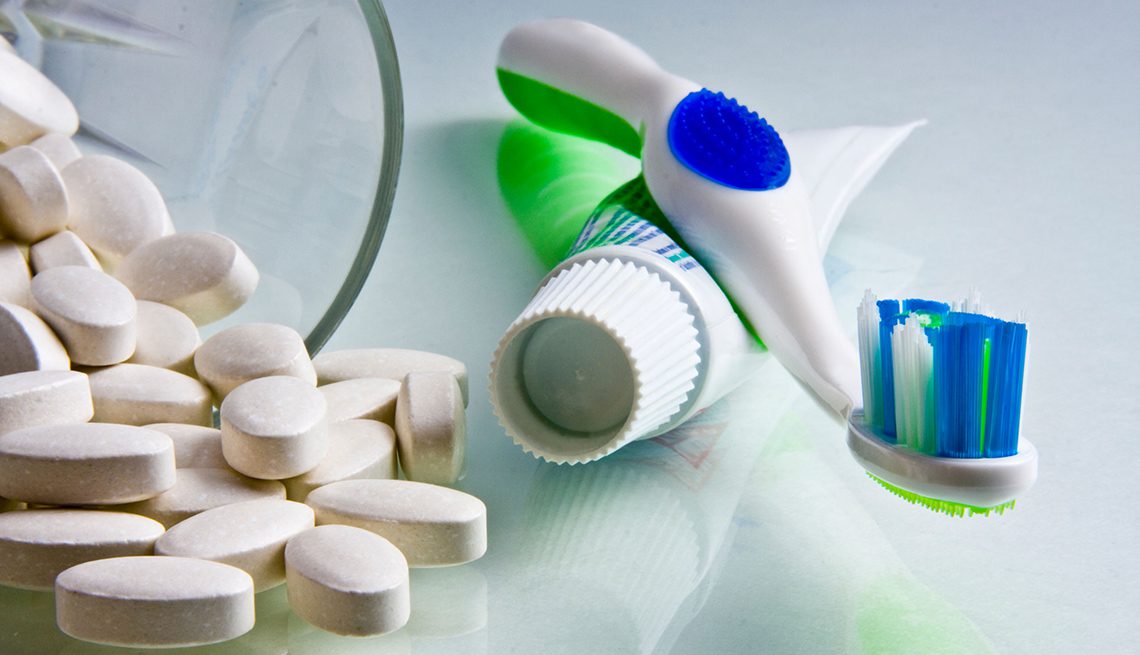Dental Procedures & Opioids – When is it Helpful?
Recovering from dental surgery is a painful and uncomfortable experience. Your mouth can be sore and tender and you could have trouble eating, swallowing, biting or speaking. The last thing a patient wants is to endure this suffering for days or even weeks. It’s a dentist’s job to manage this pain so that a patient can heal and return to their everyday lives.
Going into surgery, every patient should rest assured that a post-operation and pain management plan is in place. One important decision is whether opioids will be used to manage pain. Since opioids carry several serious consequences, a patient must be aware of what they are ingesting and discuss all the options and alternative medications. Furthermore, a dentist should explore other options and consider opioids more of a last resort only to be used in cases where a patient is dealing with acute pain.
To make sure you understand the role of opioids in dental pain management, let’s review what they are and why they are so prevalent in the current news cycle. Additionally, this article will review procedures that often call for extensive management of acute pain. Lastly, we’ll review other methods, including how Barrie Dentists approach this important part of patient care.
What are Opioids?
Opioids are used worldwide because of their proven pain-relieving properties. They have an innate ability to alleviate acute pain, helping someone get through their daily life with minimal discomfort.
Opioids need to be prescribed by a doctor and come in the following medications:
- Codeine
- Hydromorphone
- Fentanyl
- Morphine
- Oxycodone
- Medical heroin
It can come in a variety of forms:
- Tablets
- Capsules
- Syrups
- Nasal sprays
- Suppositories
- Liquid injections
- Skin patches
Opioids should only be used in the case of chronic pain. Patients need to be careful that there aren’t other strategies available that could be just as effective and a lot safer.
Benefits and Risk
The only true argument for pain management featuring an opioid is that it can provide significant relief. If a patient is vetted as a candidate and monitored by health professionals, they should be able to use the medication as required without developing a dependence.
The cons, though, are extensive. For starters, opioids in low dosages can make someone drowsy. In high dosages, though, it can slow one’s heart rate, which can be very dangerous. Another drawback is that opioid withdrawal can be intense, even life-threatening, and most forms of this narcotic can be obtained illegally. This combination can lead to addiction.
There’s also the issue of leftover opioids in your home. Most people don’t take the time to safely dispose of medication or to even keep it in a secure place. You don’t want opioids unguarded in your home, especially if you have children.
Other cons include liver damage, infertility in women and a patient developing an increased tolerance, resulting in them upping their dosage.
Since North America is in the grips of a public health crisis centered around opioid abuse, it’s clear that the risks outweigh the benefit.
Dental Procedures That Might Require Pain Management
Pain management is a key component of post-op care after a patient undergoes procedures like tooth extractions, root canals and wisdom tooth removal.
Tooth extractions are required when a tooth needs to be removed because it is misshapen, impacted, decayed or to fix overcrowding. It’s a straightforward procedure that is sometimes done during a regular checkup. A dentist will expand the socket that holds the tooth in place and then separate the tooth from the ligament.
A root canal is a proven way to alleviate severe pain and fix teeth that have been infiltrated by bacteria in the pulp tissue. They are usually necessary in the case of deep cavities or a cracked tooth.
Wisdom teeth are a type of molar located at the back of the mouth. They often become impacted because there simply isn’t enough room for them to grow. If left in place, you could experience pain and gum swelling.
With respect to wisdom tooth removal, it is often teenagers who need this procedure. This results in many young men and women being prescribed harsh opioids like Percocet or Tylenol 3 to stay ahead of the pain.
Remember, opioid medication should only be taken as per your dentist’s direction. In addition, it should never be used by anyone who was not given a prescription and under no circumstance should it be mixed with other drugs or alcohol.
Lastly, don’t let fear regarding pain managing delay the dental care you need. Be sure to ask your dentist for other pain relief options.
Non-Opioid Alternatives
Dentists usually rely on nonsteroidal anti-inflammatory drugs (NSAIDs) and acetaminophen to manage pain ranging from mild to moderate. This is a common range for people who had to endure a tooth extraction or dental implant but pain tolerance is a personal thing, and no one should feel guilty about having a lower threshold.
There is no scientific evidence to suggest that NSAIDs and acetaminophen aren’t strong enough to alleviate severely acute pain. In fact, many healthcare professionals believe that NSAIDs can work more effectively than opioids. Some suggest that NSAIDs with local anesthesia and acetaminophen can prevent or reduce post-operative pain. Additionally, if a patient is uncomfortable or has a history of addiction, stronger opioids can be replaced by Naproxen, an over-the-counter pain reliever that is closer to Aspirin than Codeine.
If a patient has a history of substance abuse, a dentist should consider a multi-prong strategy for managing pain without the aid of opioids.
Our Approach
Barrie Dentist will ensure we manage post-op pain by using the right combination of over-the-counter and prescription medication. While we’re careful about prescribing powerful opioid medication, it’s a tool in our toolbox, and we’ll use when it’s required. We’re not afraid to use it when we think it’s going to help our patients recover with minimal post operative discomfort.
We offer several oral surgeries, all of which require pain management and believe it to be our responsibility to provide appropriate methods based on a patient’s specific case. Ultimately, we’ll have the conversation with you, making sure you understand the benefits and drawbacks of each option and help you arrive at the best decision for your recovery and health.
Overall, our clinic uses a holistic approach to dentistry. While it can go by other names like integrative dentistry, the idea is to incorporate all available treatment and healing options into our practice. Holistic dentistry considers the oral health of a patient in the larger scope of their emotional and physical health. This generally means refraining from harsh toxins or materials that can cause a patient to have a negative reaction. Understanding that when misused or mis-prescribed, opioids can have a detrimental effect, but at the same time understanding there’s a place for prescribing opioid based medications.
At Barrie Dentists, we offer a multitude of dental procedures, including root canals, crowns, fillings, bridges and pinhole surgical technique to fix gum recession. We help our patients manage the pain resulting from dental work or oral surgery by devising post-op care plans tailored to their health and recovery needs.
Book Your Appointment Today
Our only goal is to get your smile in style and to make sure the dental care we provide is as pain-free as possible.
Book your free, no-obligation consultation to learn how Barrie Dentist would handle post-op pain management for your specific situation.
Appointment Request
If you’re interested in any of our procedures, and would like to meet with one of our dentists to discuss options, costs and get additional information, complete this short form and we’ll give you a call to arrange for a no-obligation appointment at our Barrie clinic.










